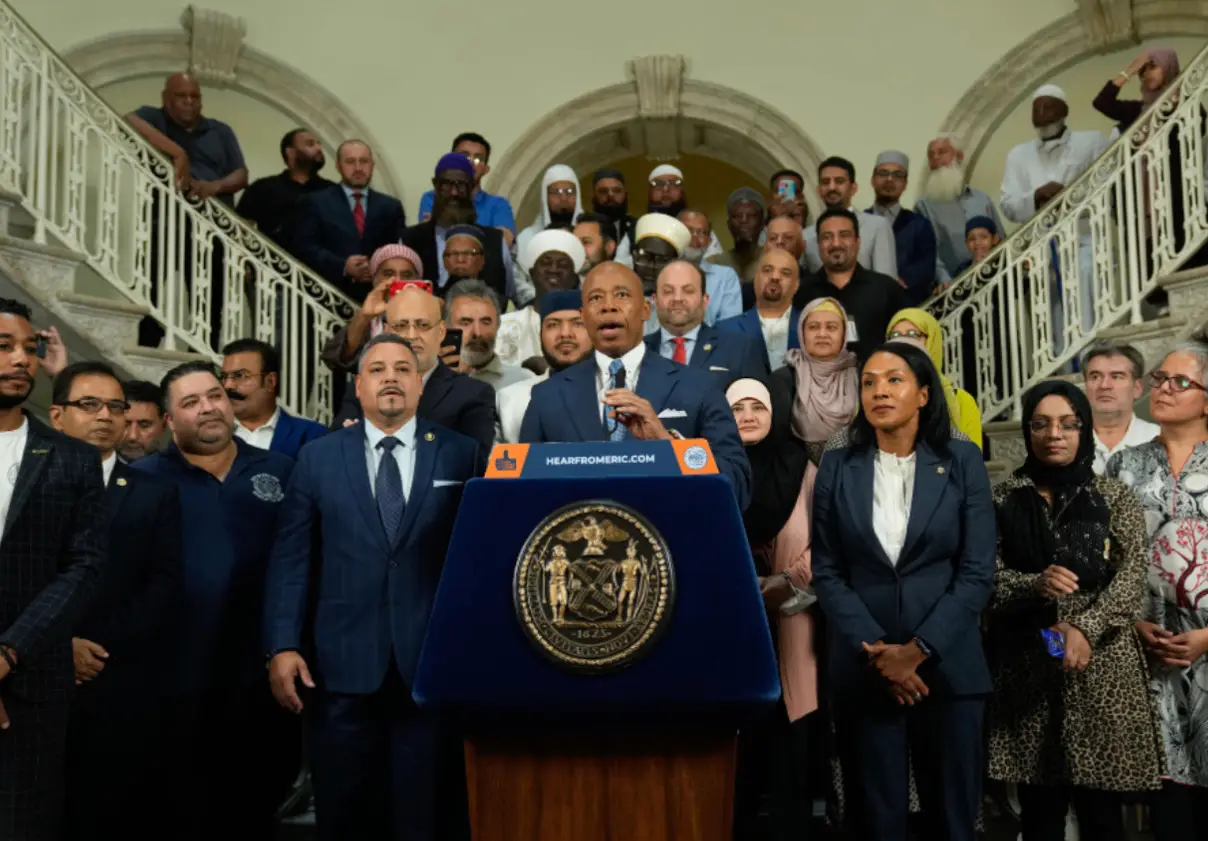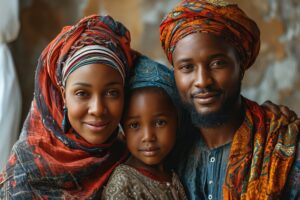Just in advance of the past Labor Day weekend, NYC Mayor Eric Adams held a press conference at City Hall to make an announcement of historic religious significance. To magnify the impact of the moment, the Mayor surrounded himself with a large, ethnically diverse gathering of Muslim leaders from throughout the city’s five boroughs – including African Americans, Latinos, South Asians, continental Africans, and Arabs – both men and women.
“Throughout my years in public life”, he stated , “one thing that I took note of throughout this entire journey is how this was not a city for everyone: this was a city that ignored so many cultures and communities…” . The second African American mayor in New York City history then announced the launching of a new NYPD initiative designed to support and facilitate the Islamic call to public prayer at regularly prescribed times each Friday, and nightly during the Muslim sacred month of Ramadan. “For too long, there has been a feeling that our communities were not allowed to amplify their calls to prayer” he stated. “Today, we are cutting red tape and saying clearly that mosques and houses of worship are free to amplify their call to prayer on Fridays and during Ramadan without the necessity for a permit. We want our brothers and sisters of Muslim faith to know that they are free to live their faith in New York City because, under the law, all will be treated equally. Our administration is proud to finally get this done.”

Speaking formally in support of the initiative, and in a dual capacity as Chairman of the Association of African-American Imams (NYC) , and as a special representative of the Majlis Ash-Shura (Islamic Leadership Council ) of New York, MANA founding Board Member Imam Al-Hajj Dr. Talib ‘Abdur-Rashid traced the spirit of the initiative back 33 years, to New York City’s first and previous African-American mayor, David N. Dinkins. During his single term, Mayor Dinkins issued a call to the citizens of New York ,celebrating what he called its’ “gorgeous mosaic of ethnicities, faith, traditions, and languages”.
Imam ‘Abdur-Rashid cited New York City’s history of inclusion of measures tied to Muslim life and values, including the adding of the two major Muslim sacred days of ‘Eidul-Fitr and ‘Eidul Adha to the New York City Transportation calendar, the closing of public schools for those same days along with an ever-expanding halal school luncheon program in public schools, and full-time provision of halal meals to Muslim inmates in custody and care of the New York City Department of Corrections – the only jail system in America that enjoys that type of accommodation.
The imam further mentioned the sacrifice of Muslim first responders, and the work of Muslim spiritual leaders, after the tragic events of September 11, 2001 – acting in concert with others in prayer , standing together with love and compassion to heal the city. Imam Talib concluded by counseling the city-wide Muslim community and their neighbors, to continue to move forward patiently as public life grows to accommodate further inclusion of Muslim presence in the public sphere





